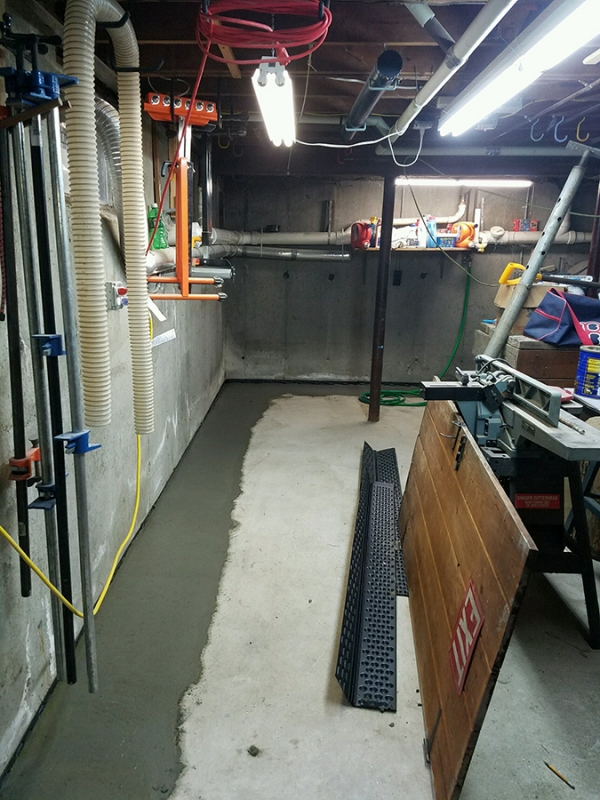Waterproofing is a critical consideration for property owners and property managers alike, yet it often falls to the wayside until the damage is done. With the risk of water infiltration posing a major threat to the integrity of properties, understanding the necessity of waterproofing becomes crucial. Whether you are looking to protect your home from flooding or simply want to prevent mold growth in your cellar, the right waterproofing solutions can save you a lot in repairs and ensure a safe living environment.
However, when it comes to executing waterproofing projects, many people find themselves torn between do-it-yourself methods and hiring expert services. Each option carries its own set of advantages and limitations. In this article, we will explore the important factors to consider when choosing between a DIY method and enlisting the help of a expert waterproofing contractor. By outlining essential waterproofing strategies and debunking common myths, we aim to provide you with the knowledge necessary to make an informed decision that best suits your needs.
Grasping the Significance of Water Resistance
Water resistance is an crucial aspect of preserving any residential property or edifice, as it safeguards buildings from the destructive effects of moisture penetration. Moisture can leak into foundations, walls, and ceilings, causing significant damage over time. By adopting proficient water resistance methods, building owners can avoid issues like mold growth, structural damage, and costly repairs down the line. This preventive approach not only preserves the structural soundness of a building but also improves its overall worth and durability.
Ignoring waterproofing can lead to severe consequences. Many owners do not realize the severity of loss that water can cause until it is too late. Clues such as musty odors, stained surfaces, or damp basements should not be dismissed, as they may indicate underlying issues that require immediate attention. The expense of ignoring these warning signs can be significant, making it vitally important for building owners to understand the necessity of prompt waterproofing interventions to avoid greater expenses in the future.
Additionally, waterproofing is not just about safeguarding structures; it also adds to better living environments. High levels of moisture can lead to the development of fungus, posing grave health risks to occupants. By making certain that houses are adequately waterproofed, not only are structural damages stopped, but the overall air quality and well-being within the space enhance. Thus, choosing the right waterproofing solutions is vital for both protection and comfort, emphasizing the necessity of this important process.
Do-It-Yourself vs. Expert Waterproofing: Choosing the Best Choice
When it comes to waterproofing your home or building, you may find yourself weighing the choices between DIY methods and hiring professionals. One of the key benefits of a DIY approach is saving money. Many homeowners feel assured in tackling waterproofing projects themselves, especially with the plethora of online resources and products available. If you have some basic skills and the right materials, you can handle minor issues, like sealing cracks or putting on waterproof coatings. However, it's essential to keep in mind that not all waterproofing jobs are appropriate for a DIY approach, and errors can lead to major water damage later on.
Conversely, professional waterproofing services offer expertise and a guarantee of high-quality work. Experienced contractors have the expertise and unique tools necessary to address complex waterproofing issues effectively. They can evaluate your property's unique needs and recommend tailored solutions that might not be evident to an untrained eye. Additionally, professional waterproofing often comes with warranties, which provide peace of mind knowing that any future issues concerning the work done will be covered.
Ultimately, the decision between DIY and professional waterproofing depends on the severity of the problem and your level of skill. For https://output.jsbin.com/digexaruju/ , manageable jobs, a DIY approach may suffice. On the contrary, for larger projects or critical issues, investing in professional services can save you resources, energy, and potentially significant repair costs in the future. Evaluating your skills and the particular needs of your property will guide you toward the best choice for efficient waterproofing.
Key Waterproofing Techniques for Property Owners

Homeowners can adopt several efficient waterproofing techniques to safeguard their homes from moisture damage. One of the most critical measures is ensuring sufficient drainage around the foundation. This involves designing the landscape outward from the house to channel rain away from the home, as well as installing gutters and downspouts to divert roof runoff. Frequently cleaning these systems helps avoid blockages that could lead to standing water near the base, significantly lowering the risk of leaks and construction damage.
Another important technique is using waterproof coatings to both indoor and exterior surfaces. Using high-quality sealants on basement walls and floors helps create a shield against moisture infiltration. For exterior walls, select appropriate paint or membrane systems designed for waterproofing, and make sure to cover all vulnerable areas carefully. Additionally, property owners should always treat any cracks and gaps in their walls and basements to stop water leakage before applying these coatings.
Lastly, creating a humidity-controlled environment indoors is important for avoiding mold and mildew growth. Property owners should evaluate investing in dehumidifiers, especially in basements and crawl spaces where moisture tends to build up. Frequently inspecting and sealing areas prone to leaks, such as near windows and doors, also plays a key role in keeping indoor spaces moisture-free. By merging these techniques, property owners can defend their houses and enhance their lifespan against water damage.
